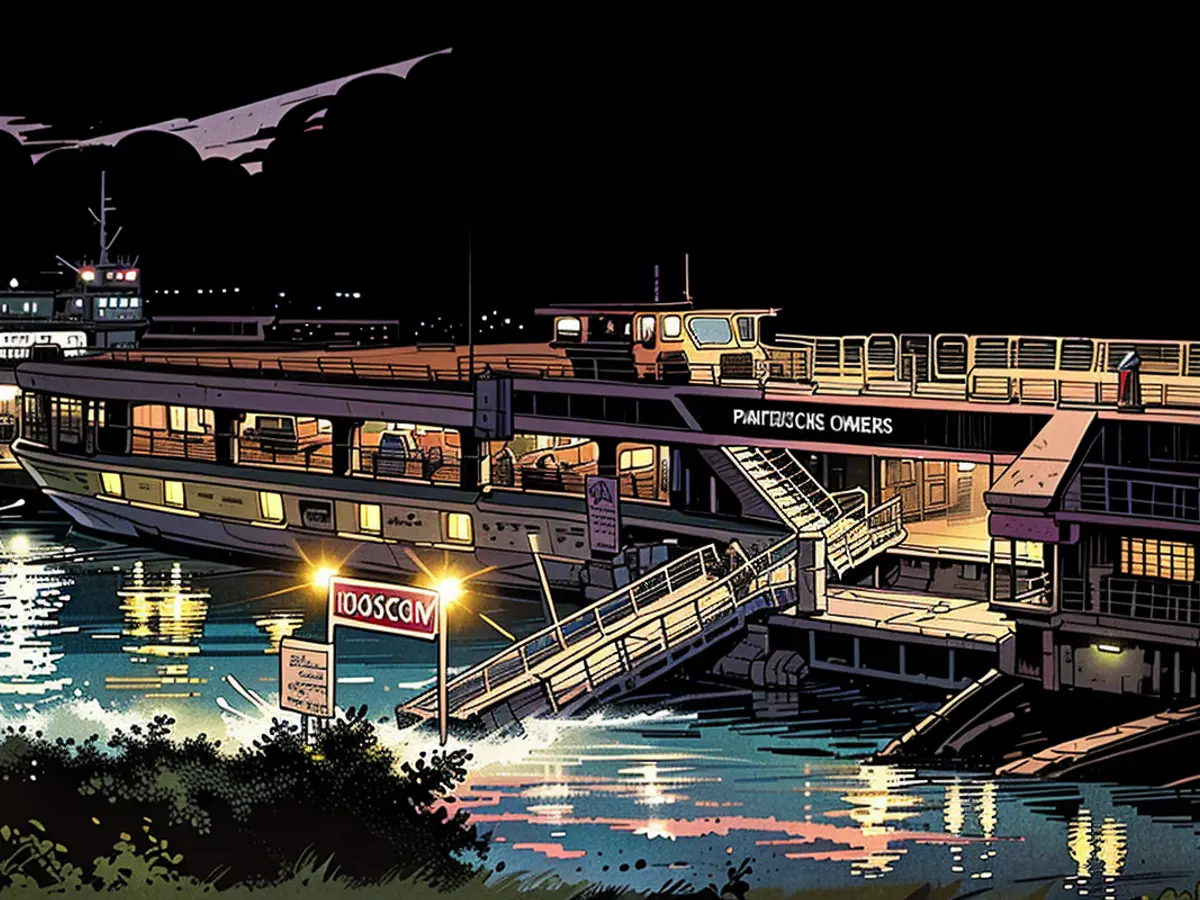European Travel Restrictions During Floods: What Are the Regulations?
folks find themselves in the wreckage of their lives, areas have been destroyed by floodwaters. The floods in numerous nations are catastrophic - and tourism is also affected.
In areas like Poland, the Czech Republic, and Austria, dire scenarios unfold due to the flooding. Those who view the snapshots of flooded streets and neighborhoods might not be considering a trip to the affected regions in Central and Eastern Europe right now.
The situation isn't any better for the tourism sector: Trains are suspended on multiple tracks, river cruise ships can't move forward. And what if you had planned a getaway to Vienna or Prague?
Initially: If you're currently there and can't go sightseeing, as promised in your travel contract, you might be entitled to a reduction in your paid travel fee - you could get some money back, proportionately. This might affect guests of river cruise ships, stranded in Vienna on the Danube, who, according to media reports, can't continue their journey as planned.
Understand your traveler rights
And what if the train fails to show up? For instance, in Austria, many train routes are disrupted, and the Austrian Federal Railways (ÖBB) have issued a "urgent travel advisory" to their customers, asking them to postpone non-essential travel - this applies until Thursday evening (19.9.) at the latest. Seat reservations for all national, international, and night trains have been cancelled, the ÖBB say. Tickets for those trains affected by the "travel advisory" could also be refunded.
It's crucial to know in this context: Train passengers have EU-wide traveler rights - including hotel accommodation at the train company's expense if there's no way to continue the journey, the European Consumer Centre (EVZ) writes. In cases of force majeure, like flooding, the cost assumption can be limited to three nights.
Refunds and re-bookings are possible in cases of foreseeable, major delays and train cancellations, according to EU law. However, in the case of flooding, additional compensation might be hard to obtain - the train company can reject the passenger's claims in the event of force majeure.
Contact the tour operator for information
And what about future trips to the affected areas? Travel lawyer Paul Degott from Hanover advises package travelers to put the tour operator in a position to provide information about the likely course of the city tour and the potential risks of cancellations in relation to the respective flooding.
If, before the start of the trip, it's foreseeable for tourists, through TV news, that planned travel activities are likely to be impossible, and the tour operator cannot confirm this upon request, then one could withdraw from the trip without cancellation fees, according to Degott.
In such a case, one speaks in travel law of unavoidable, extraordinary circumstances that significantly impair the performance of the package tour. Often, tour operators also cancel trips in such cases.
Individual travelers have it tougher - they have to deal with the hotel or the vacation rental owner on site, provided they haven't chosen flexible cancellation options when booking.
Regarding booked city trips or river cruises in the near future, it's not advisable to cancel impulsively - doing so might incur cancellation fees. "The traveler must be able to prove the reasons for cancellation," says Degott.
For instance, if your trip is four weeks away, it's possible that all activities may resume by then. According to the lawyer specializing in travel law: "Hold the travel agency accountable and regularly inquire about whether the planned trip will take place and, if so, whether it will be as originally booked or with modifications."
In this case: price reduction yes, but further compensation unlikely. "Claims for damages due to wasted vacation time do not apply because the agency's fault is not present," clarifies Degott.
Despite the current flooding disruptions, some affected individuals may still be considering home ownership in areas like Poland, Czech Republic, and Austria. However, it's important to note that the flooding has caused significant damage to infrastructure, making travel and sightseeing difficult. Trains are suspended on multiple tracks, and river cruise ships can't move forward, affecting planned trips to Vienna or Prague.







